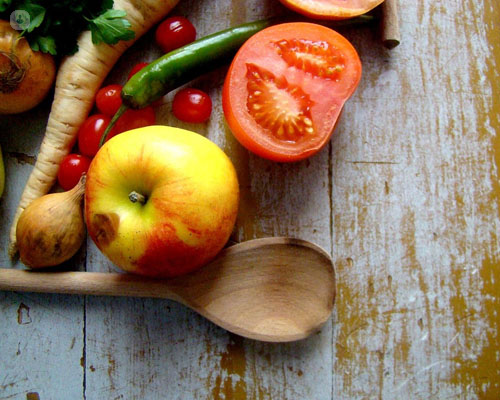

What is oncological nutrition?
Cancer patients often experience changes in appetite caused almost always by the tumour itself and the medication they need to take. The sense of taste is affected and the resulting lack of appetite can cause malnutrition and substantial weight loss. However, one-third of people already suffer from malnutrition at the time of diagnosis, a number that increases after surgical treatment and/or radio-chemotherapy.
Therefore, the aim of oncological nutrition is to ensure that the patient receives sufficient nutrients so that the body can function properly during oncological treatment. To help the patient to eat, it is important to provide them with the easiest and most convenient way to do so.

Why is it recommended?
Oncological nutrition is recommended to ensure that the cancer patient receives the nutrients and vitamins they need for their body to function properly during and after treatment.
What does it involve?
Oncological nutrition is based on increasing the patient’s intake of protein and calories with small amounts of hot or cold food that is highly nutritious and easy to digest. It is very important that the patient chews well and slowly, avoiding foods that are difficult to chew or which are cut into large pieces (meat, for example).
It is also advisable not to drink during meals, and a relaxed atmosphere should be created to mitigate the discomfort experienced by cancer patients, since many suffer from problems associated with eating, such as vomiting, nausea or diarrhoea.
In general, the more diverse the diet and the more varied the food, the more nutritionally rich it will be. That said, saturated fats (pastries, cheese, sausages and meat) should be avoided and plenty of fruit, vegetables, fish and low-fat dairy products, as well as nuts, rice, pasta and pulses, should be eaten.
Preparing for oncological nutrition
Oncological diets should be personalised, as food tolerance varies from patient to patient. It should also be borne in mind that, a patient’s tolerance to food can change in a short time, so not only must the diet be personalised, but the nutrition and diet specialist must meet the patient regularly in order to modify the diet as the patient goes through their cancer treatment.
Care after oncological nutrition
The aftermath of cancer can affect patients in more ways than one, it can affect their sense of taste, lead to loss of weight or muscle mass, vitamin or iron deficiency, etc. The nutrition and diet specialist will recommend dietary guidelines to follow, even after the oncology treatment has passed.
